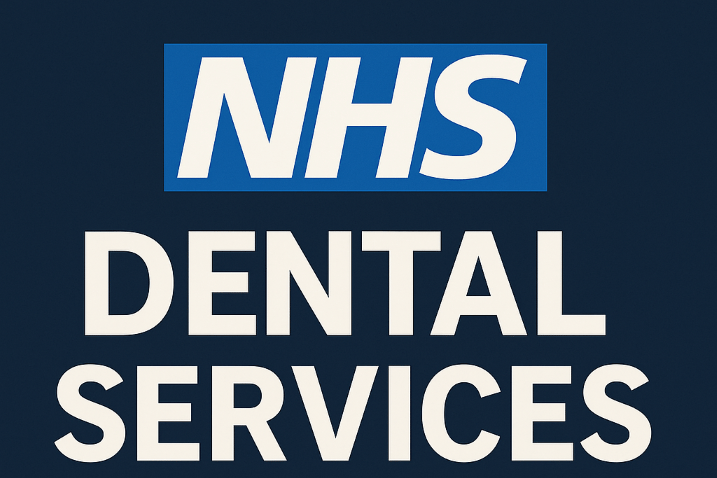What the NHS Actually Covers (and Doesn’t) for Dental (2025)
HALTHCARE
Most UK adults do pay something for dental, eye, and hearing services under the NHS. Regional differences matter: for example, Scotland offers free dental check-ups for all and free eye tests for everyone, while Wales gives free check-ups to under-25s and over-60s. If you can’t get an NHS appointment or want faster service or fancier options, private care is available—but it’ll cost you (think £40–£75 for a private dental check-up).
Why Should UK Adults Care About NHS Dental Coverage?
By your 30s, you’ve probably realised something: NHS coverage isn’t as straightforward as “free healthcare for everything.” Dental, vision, and hearing services are part of the NHS, but they come with fine print that can hit your wallet. Unlike GP visits or emergency surgery (which are free at point of use), these services often have fees, eligibility rules, or waiting lists that catch people off guard.
If you’re 30 or older, you’re in a kind of sweet spot: you’re no longer a kid (who’d get free braces or glasses), not yet a pensioner with age-related perks, and hopefully not on certain benefits that waive costs. You’re likely working, busy, and perhaps haven’t needed serious dental work.
Public satisfaction with NHS dentistry and related services has been sinking – and for good reason. In 2025, the British Dental Association noted satisfaction hit a record low, and over 1 in 4 adults have been struggling to access NHS dental care. In some areas, nearly 60% of people couldn’t get an NHS dentist appointment in the last year.
Whether you’re a lifelong Brit or newly arrived in the UK, knowing the ropes means you won’t be blindsided by a dental bill. Let’s break down dental services – to see what’s free on the NHS, what you’ll pay for, how it varies across England, Scotland, Wales and Northern Ireland, and how private options compare.
NHS Dental Care: What’s Free, What’s Not (and Regional Differences)
NHS dentistry is often where Brits first learn that “free healthcare” has its limits. Most adults pay something for NHS dental treatment – only certain groups get it free. Here’s how it works:
England & Wales – Band Charges: In England (and similarly in Wales), NHS dental treatments are priced in bands. As of April 2025 in England, a routine check-up or cleaning is Band 1 costing £27.40, fillings or extractions are Band 2 at £75.30, and more complex work (crowns, dentures, etc.) is Band 3 at £326.70. Wales uses the same 3-band system but cheaper: £20 for Band 1, £60 for Band 2, £260 for Band 3. In both countries you pay one band fee per course of treatment (no matter how many visits it takes). For example, three fillings and a crown done under one treatment plan in England all fall under a single £326.70 Band 3 charge.
Scotland & Northern Ireland – 80% Co-Pay: Scotland and Northern Ireland (NI) don’t use fixed bands. Instead, patients pay 80% of the treatment cost, capped at £384 per treatment course. In practice, that means simpler treatments might cost a bit less than the English band fees, but big treatments max out around £384. Importantly, an NHS dental examination (check-up) is free for everyone in Scotland – the Scottish NHS covers 100% of the exam fee. (In NI, exams are not free for all, only the usual exempt groups – NI follows the 80% model but without a blanket free check-up policy.)
Who doesn’t pay? Across the UK, certain people get free NHS dental treatment. Children and teens: under 18 (under 19 if in full-time education) are free. Pregnant women and new mothers (up to 12 months after giving birth) are free. Also, those on qualifying low-income benefits or tax credits (e.g. Income Support, Pension Credit Guarantee, Universal Credit under certain income threshold) pay nothing. In Scotland, a special policy goes further – all young adults under 26 get free NHS dental treatment. (This was introduced in 2021 to help younger people – so a 24-year-old in Scotland pays £0 for any NHS dental work, while their peer in England would pay the standard fees.)
Routine preventive care: All countries provide free dental check-ups for kids and often things like fluoride coatings on kids’ teeth at no charge. Scotland, as mentioned, gives everyone free check-ups – a big perk if you live there (or even if you’re an English resident who happens to register with a Scottish NHS dentist!). Wales introduced free NHS dental examinations for under-25s and over-60s; if you’re 24 or 61 in Wales, your check-up is free, though any treatment found necessary will be charged at the band rates. In England and NI, no free universal check-up – if you’re an adult and not exempt, you pay that Band 1 fee for an exam.
Other free dental services: If you need dentures or bridges as an NHS hospital in-patient, that’s free (or covered in your hospital care). Also, if an NHS dentist screws up your filling and it falls out within 12 months, there’s an NHS guarantee to fix it free. But generally, maintenance is on you – scale & polish (“cleanings”) are only included if there’s a clinical need; cosmetic work (like teeth whitening) is never covered by NHS.
Real-world dental frustrations: Finding an NHS dentist can be harder than finding Waldo. Many practices have closed lists or long waits, especially in England. Recent surveys showed about 59% of people couldn’t get an NHS dental appointment when they needed one, and in some regions only 1 in 5 people managed to see an NHS dentist in a year. It’s not uniform everywhere – big cities might have more dentists, rural or deprived areas often struggle. The result? People either wait in pain, travel far, or go private out of desperation (some even resort to DIY tooth-pulls – yes, it’s that bad).
The UK government has acknowledged the crisis and is trying to reform the system (adding urgent appointments, incentivising dentists to take on NHS patients), but change is slow.
If you do find an NHS dentist, expect some waiting for non-urgent care. Urgent issues (like infections) are handled quickly, but a routine check-up might be scheduled months out if the practice is busy. Also, NHS dentists have pressure to see patients quickly (time = money under the NHS contract), so your exam might feel a bit rushed compared to private. Still, they’re required to provide the same quality of clinical care – just maybe without the spa-like extras.
Private dental care: Many Brits mix NHS and private dental care. You might get your check-ups and necessary fillings on the NHS, but pay privately for something like a white filling on a back tooth or a nicer crown that the NHS wouldn’t cover. Private dentistry lets you pick your dentist freely, often get appointments sooner, and access a wider range of treatments or materials (e.g. cosmetic braces, implants, fancy veneers – none of which the NHS funds for adults unless there’s a health need). But it comes at a price. Typical private fees in 2025: a check-up exam ranges ~£40–£75 (vs £27.40 NHS); a small filling might be ~£100–£150 (vs £75 on NHS); a ceramic crown £500+ (vs £326 on NHS, albeit NHS might only offer a metal crown for a back tooth). You’re paying for more choice, longer appointments, and sometimes a plusher clinic with posher coffee in the waiting room.


Cost tip: If you need a lot of dental work and you’re not exempt, the NHS will usually be cheaper to get the basics done – e.g. multiple fillings and an extraction will still just cost £75 total on NHS Band 2, whereas privately that could easily top £400. However, for something like an implant or cosmetic straightening, NHS isn’t an option at all for most adults, so private is the only route. Some people opt for “dental plans” or insurance to spread private costs – something to consider if you anticipate big dental bills.
Regional takeaway: If you move around the UK, remember these differences. A Scot visiting family in England might be shocked when asked to pay £27 for a check-up (that’s free back home). An English uni student in Scotland might happily get free check-ups there. Wales and NI have their quirks too. Always tell the dentist if you think you qualify for free treatment (age, student, pregnancy, benefits, etc.) so they can apply the waiver. They are required to check eligibility, and you may need to show proof (like a maternity exemption card or benefit letter). If you pay when you shouldn’t have, you can claim a refund later – but better to sort it upfront.




